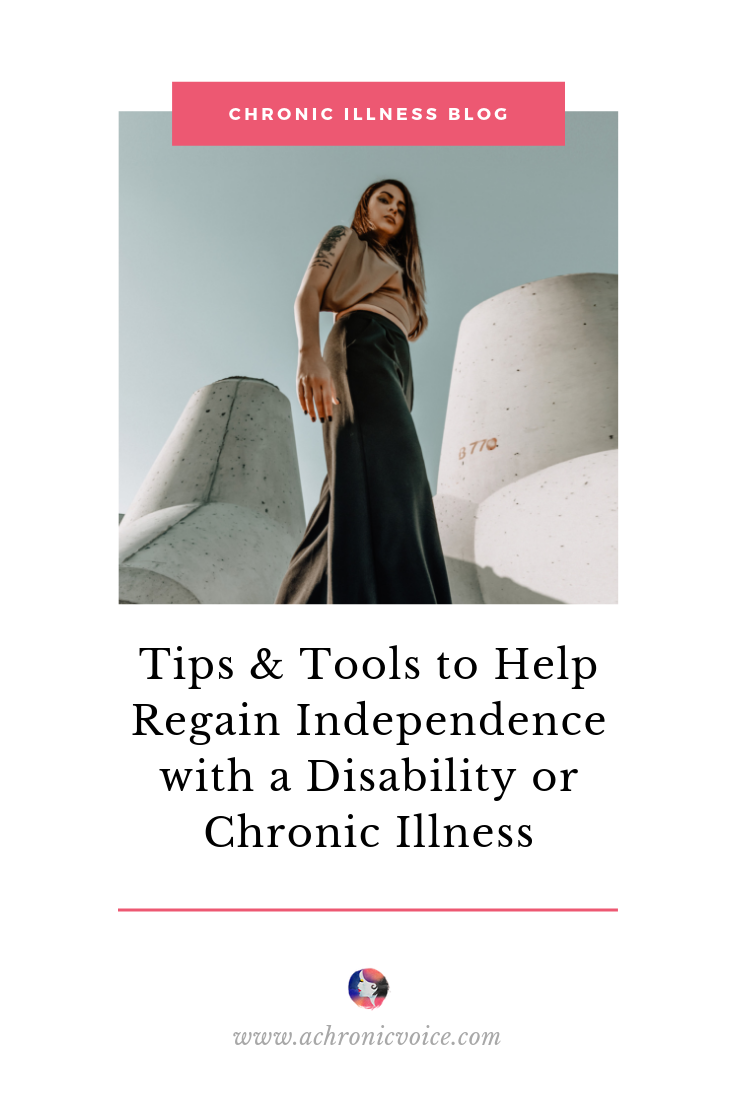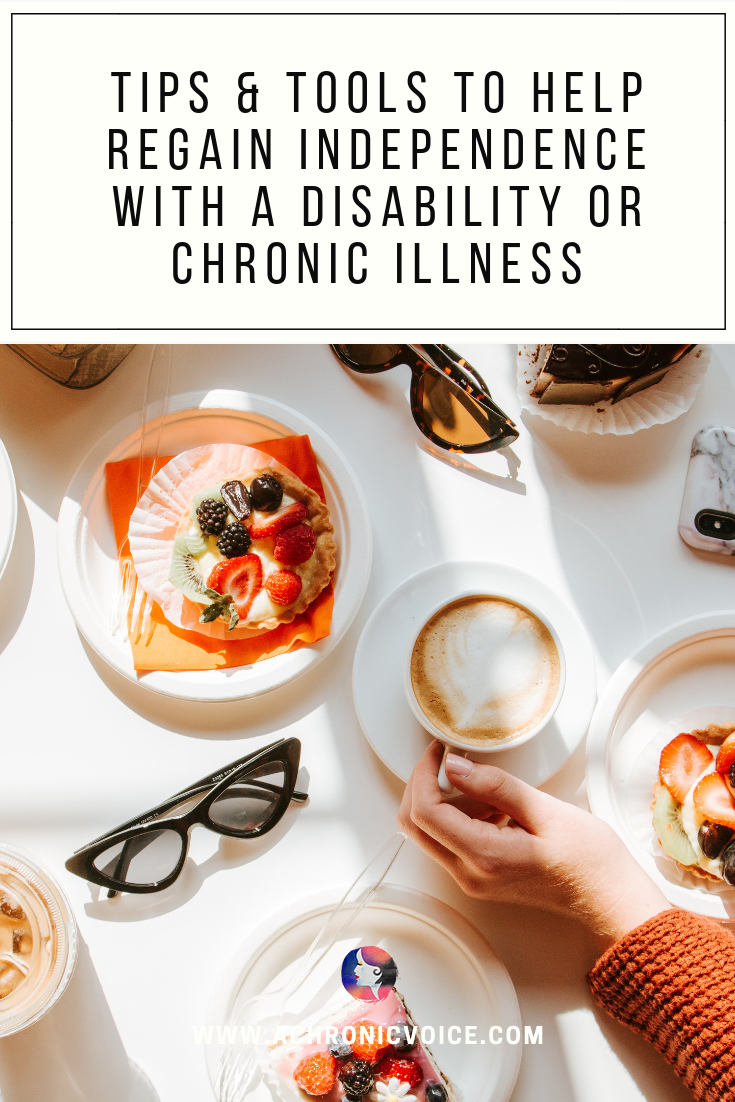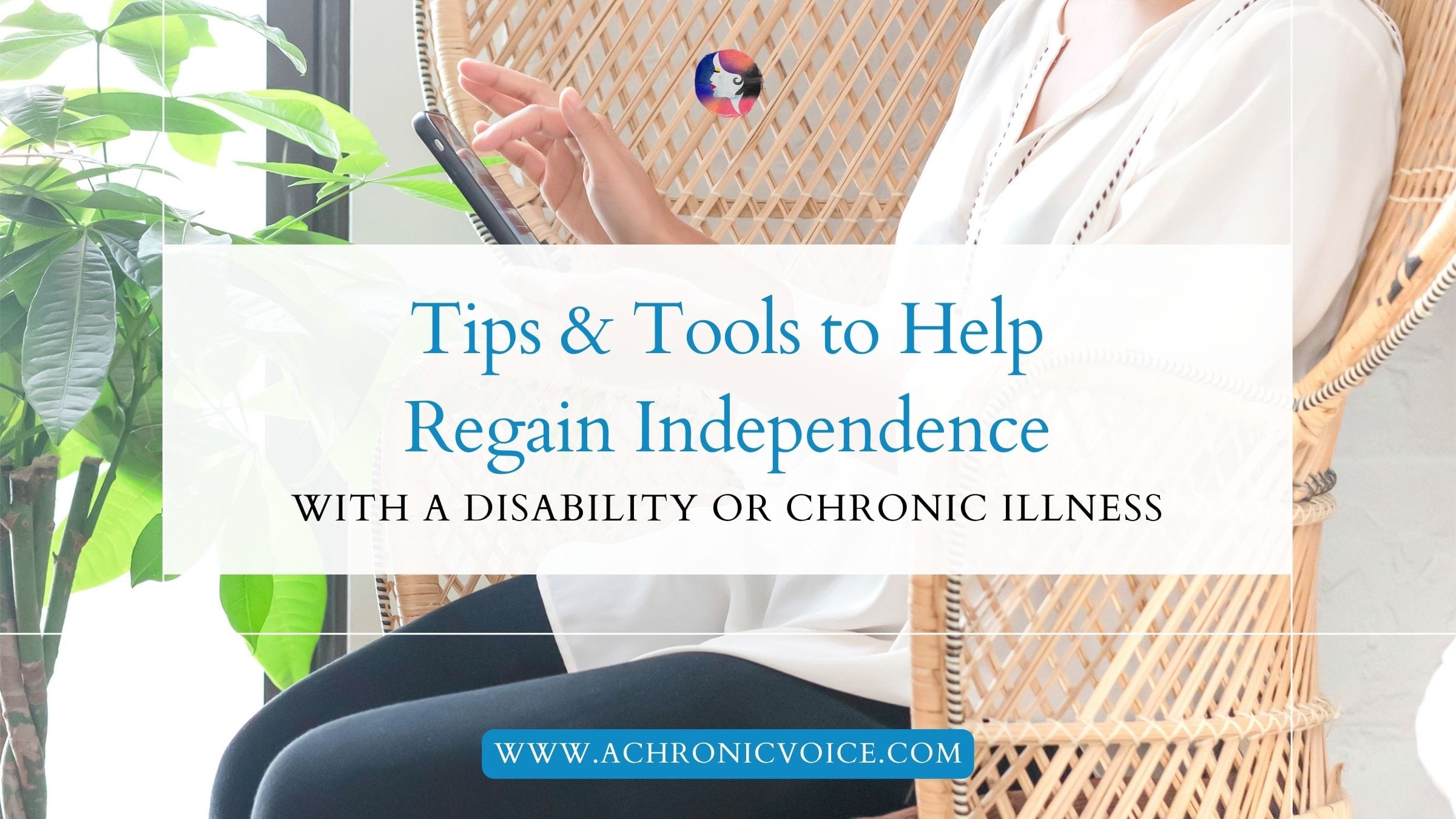*Disclaimer: Whilst this post is sponsored by Age UK Mobility, all opinions expressed in this review are my own. This article is meant for educational purposes, and is based on my personal experiences as a patient. I am not a doctor, and nothing in this article should be substituted for medical advice. Please consult your own doctor before changing or adding any new treatment protocols. This post may also contain affiliate links. It will cost you nothing to click on them. I will get a small referral fee from purchases you make, which helps with the maintenance of this blog. Read our Privacy Policy page for more information. Thank you!
The Challenges of Everyday Living with Disability or Chronic Illness
Living with a disability or chronic illness, whether visible or invisible, can transform the simplest everyday task into a challenging beast. One that requires tremendous effort to overcome, and saps you of energy when the day has barely begun.
Chronic illnesses and physical disabilities mean that they will probably last for a lifetime as well. As such, it might not be so bad of an idea to implement some home and lifestyle changes that could possibly improve your quality of life. Whilst some of these addons may be big ones, many are also small tweaks with beneficial tradeoffs. Read on for some tips on how to regain independence despite living with a chronic illness or disability.
Pin to Your Home & Living, Disability & Chronic Illness Boards:

1. Medications and Therapies
I recently asked the Twitterverse in the form of a poll, “As a disabled or chronically ill person, what do you think gives you the most independence?”, which received nearly 500 votes.
As a #disabled or #chronicallyill person, what do you think gives you the most #independence? Do share your knowledge with me and others! :) #disability #chronicillness
— A Chronic Voice (@AChVoice) May 11, 2019
The option that received the most number of votes was ‘pain meds’. For me, they are a big help when I have no choice but to get a task done, when I’m travelling, or when I want to attend an event. Sure, the pain will probably return with a vengeance after, but sometimes it’s also worth it to be able to do ‘normal’ things and participate in life. It’s nice when you can create some beautiful memories that will last a lifetime.
Many people also tweeted at me to clarify, as medications that enable one to function cover a wider range than that. One woman said that HRT (hormone replacement therapy) helps her migraines, and sometimes it is anti-anxiety meds or steroids you need instead. Not quite pain relievers, but with all the same goal of regaining a manner of composure and independence. Long term medications such as biologics or immunosuppressants that work can be big game changers as well.
2. Mobility Aids
Next in the poll were mobility aids; wheelchairs, walking canes, rollators, scooters and crutches all fall under this wide umbrella. The all-terrain mobility scooter someone owned sounded like a practical unicorn! Smart crutches also sounded interesting, and many of these aids are customisable to fit your individual needs.
I’ve also read many blogs written by disabled people, and if there’s one thing I can conclude from them, it is this: their mobility aid is their biggest tool to freedom and independence, and many regretted not using them earlier.
There is a stigma attached to mobility aids in society, where you're expected to be completely paralysed to ‘qualify’ the use of one. The younger you are, the closer the scrutiny. But as one blogger wrote (I’m so sorry I forgot who!), we need to pave the way for acceptance within society. In order to normalise it, we need to get out there and be seen collectively.
3. Exercise (All Movement Counts!)
Exercise is a pretty generic term; it could mean crossfit, marathon running, yoga in its various styles or stretching. Many people with chronic pain find it hard to even get out of bed, much less exercise, but some gentle movement when you’re able to can help to improve your flexibility and stamina.
If you suffer from a form of arthritis, strength building exercises can be helpful in providing support for your joints over time. Many of these exercises can be done in a pool as well, which helps to reduce friction and pain, and take some weight off your joints. Christa Fairbrother is an instructor who focuses on aqua yoga for arthritis, and whose blog I've followed for some time. Here she shares some simple hand exercises you can do to keep those joints mobile.
You can also be mindful and sneak in a light stretch every now and then whether you're lying in bed or sitting in your chair, to prevent stiffness that might feed into a vicious cycle of yet more pain problems. Never force yourself to do more than your body can handle however; the aftermath isn’t worth it. But a light push here and there can have cumulative effects, thus increasing your physical capabilities over time.
4. Digital Tools & Electronic Devices
Digital tools for both in and outdoor use are plentiful in modern society. There’s always something new and upcoming on the market. Kickstarter is a good place to see what I mean. Just open their website and chances are, you'll find some imaginative health-related gadget on their home page.
The Amazon Alexa and Google Home are some well-known equipment that you might have heard of. People have transformed their homes into accessible hubs, and use them as a control station for lights, locks and more. They can also be set up to be a robotic personal assistant, reminding you of important events every day.
I also chanced upon development of this smart glove for the blind whilst going through my newsfeed. It provides the user with detailed feedback about their surroundings, and looks like a pretty amazing tool to me. But I’d also love to hear some feedback about it from those who are actually blind or visually impaired themselves!
5. Foods, Diets & Supplements
Yes, food can be used as a tool to aid in your fight against chronic disease as well, and a powerful one at that! Whilst it doesn’t cure, many people have reported feeling much better after a change in their diets. This is especially critical if you suffer from some form of digestive, gut or bowel related disease.
Chronic pain from autoimmune disorders stem from inflammation, thus it'd make sense that a low and anti-inflammatory diet would be beneficial. This includes but isn't limited to: nuts such as walnuts and almonds, fatty fish such as salmon and tuna, fruits such as berries and oranges, and vegetables.
Curcumin is a component of the spice turmeric, and is a powerful anti-inflammatory and antioxidant. It also has the most clinical evidence to date, on its effects on inflammatory disorders such as Rheumatoid Arthritis. Supplements often need to be paired with another compound to boost its bioavailability (the amount that's actually absorbed and used by your body). Piperine, a compound found in black pepper, boosts the effect of curcumin by up to 2,000%. A word of caution: curcumin is a blood thinner. As with all supplements, do verify its interactions with your current medications, protocols or illnesses before consuming.
Other popular diets espoused by others with chronic illnesses are the AIP, Paleo, FODMAP, ketogenic, and more. Some patients have found relief through strict adherence to these diets, and they might be worth trying, if you're someone who is able to stick to the plan! 😉 Do your research and work closely with your health practitioner, as you don’t want to become malnourished.
6. Home Modifications & Ownership
The place where most of us with chronic illnesses or physical disabilities feel the most comfortable in is at home. This is where we remove our inhibitions, and can take a breather both mentally and physically. It is the one place where you can adapt your environment to fit your own needs. From the bedroom to the kitchen and bathroom, there are many things both big and small that you can do to make life a little easier for your individual needs at home.
Marina Carlos is a disabled blogger, who created a thread on Twitter showing how she has adapted each room in her own home to fit her needs. I found it insightful as she highlights issues that I wouldn't have otherwise paid attention to, such as the height and size of mirrors. She shows us how she lays out her bedroom and bathroom, to make transfers to and from her wheelchair more convenient. She also talks about how she organises her wardrobe and kitchen for easy access.
A stairlift can help you to stay independent as well, by allowing you to access different levels of your home with ease any time, any day. There are many different kinds available: straight, curved, outdoor, previously owned and even those that are able to carry wheelchairs. They can be custom made to fit the shape of your staircase and individual needs as well.
Home ownership can give you a bigger sense of independence as a disabled person, yet is no easy feat either. It is important to know the pros and cons, and also your rights as a home buyer. There are a number of programmes and resources out there to help with the purchase of your own home, or even repairs and modifications.
7. Alternative & Complementary Therapies
As chronic illness patients we get few answers from medical textbooks. Our hope dwindles as treatment after treatment option gets struck off the list. As such, many of us are desperate and/or willing to try alternate therapies in search for some hope. Acupuncture and physical therapy are some well established ones, and work pretty well for some people who suffer from specific problems such as migraines, menstrual cramps, back and neck aches.
I’ve tried floatation therapy, which I didn’t find helpful for my physical pains, but did give me the best sleep I had had in a few years. TCM (Traditional Chinese Medicine) is also popular here in Asia, but is something I avoid due to my blood clotting disorder. I also tried an Ayurvedic regime for a while, which is adapted based on your body type. I actually found it somewhat effective for my general wellness and energy levels, though you do need to put quite a bit of work into it every day!
Apart from these, there is a wide plethora of alternative and complementary therapies out there. They might be worth checking out, but only after you do proper research from credible sources, and get the green light from your doctor. Give it a few tries if you think it might be for you, before writing it off. Who knows, it might complement your existing medical treatments, and build your body, confidence and independence back up over time.
In Conclusion & Some Disability Bloggers I Recommend
These are just a few tools and resources that enable those with disability or chronic illness to regain independence, and go about their day as best as they can. An interesting mention from the poll was 'voice' as a tool for self-advocacy; speaking up for what you and others need can and does make a big difference!
Free travel passes and disability parking signs also received a few mentions, and have enabled disabled people to get out and about with a bit more ease. Attitude, mindset and support from friends and family may be intangible, but play a big role in helping a person to move forward, bit by bit.
Whilst I live with numerous chronic illnesses, I do not have a physical disability that requires the use of a mobility aid. As such, I thought I'd take this opportunity to share a few blogs that I read and find insightful. I hope that they provide you with more real life experiences and resources, especially if you're newly diagnosed. (Update: Well, I suffered a spontaneous bilateral patellar tendon rupture, and have now officially joined the disabled club.)
- Wheel Escapades: Gemma is a lover of tea and cakes from the UK, who blogs about accessibility and life with a wheelchair.
- Top Lady Talks: Lynley was left suddenly disabled after a pelvic fracture, and shares about her 'new life'.
- Gin & Lemonade: Lorna's blog covers a diversity of topics, from parenting with disability, writing, travelling and more.
- Sarah Lynn: Sarah lives with Spina Bifida, a disorder of the spine, and her posts revolve around and discuss societal perceptions and stigmas about disability.
Over to you — what other tools do you use that I missed out on? Or what on this list did you find particularly interesting, and would like to try? I would love to hear your thoughts in the comments below!
Pin to Your Accessibility, Mobility & Disability Boards:







Comments Archives:
Comments imported from previous WordPress site.-
Lucy
-
Sheryl Chan
-
April
-
Sheryl Chan
-
Alison Hayes
-
Katie Clark
-
Claire
-
Marcin
-
Sarah
-
Sheryl Chan
-
Lainie Ishbia
-
Sheryl Chan
-
Lucy
-
Sheryl Chan
Start a new conversation in the Member Comments below!These are such great tips Sheryl. I love how many different options you provide, covering so many different areas so there’s something to benefit everyone. I’ve never heard of Quell or Oska Pulse, I’ll have to check them out and give them a go. Losing my independence was one of the hardest things when I first struggled with chronic illness. Making these changes you suggested to regain some form of normality makes such a huge difference.
Hi Lucy, you’re most welcome! I really need to update this list, too. I recently ruptured both my patellar tendons as you know so the loss of independence has been really annoying. Fingers crossed!
This is a great post, thank you! I completely agree with the mobility aids, especially. It was a giant step to start using a cane (and later, a wheelchair for longer distances) at age 33, but it made all the difference. I continue to rely on them during relapses, and always have to swallow my pride the first time I pull them back out and venture into public. I also appreciated your round-up of fellow bloggers and will be sure to check them out! Thank you for a great post!
Hi April, thank you for your comment. Yes I recently ruptured both my patellar tendons so am disabled for a while. Going to be a long road ahead so this post will help me too, hopefully!
Sheryl,
Thank you for this pretty thorough guide of options. Like you, I’m dealing with chronic stuff but don’t use any mobility aides, so it’s nice to have some resources specifically on that perspective.
I’m all about self-advocacy and developing those skills, and definitely have been helped most by medication, mindset, and exercise. I’m a huge fan of MBSR as a tool as well.
Great info here as a starting point for anyone looking to improve their independence and quality of life while managing a disability and/or chronic illness. I appreciate that you share other bloggers that you respect, so I know they give quality info.
Such a comprehensive guide! So many good options and many that I use myself.
Thank you very much Sheryl for providing this kind of guide, as many people need to be more aware of this topic. As Mobility Scooter dealer from the UK, that you can find on https://velobike.co.uk/ we have gladly reshared this post of yours on our own social media’s because you have done a great job. If you have ever need for sources on mobility scooters feel free to get in touch with us, we will gladly provide you with good research material. Cheers!
Thank you so much Sheryl for including me in your list of incredible blogs! It was such an honor to be included in this!
Keep up the fab perspectives and writing, Sarah!
What an honor to be included in one or your fabulous Blogs!! Thank you so much !
You’re welcome, Lainie. Keep up the fab niche resources!
Since getting a shower seat it’s made showering much easier and is something I’d highly recommend. I’m hoping to try acupuncture and love essential oils.
Glad to hear there are small things that are helping you to cope, and all the best with the other therapies!